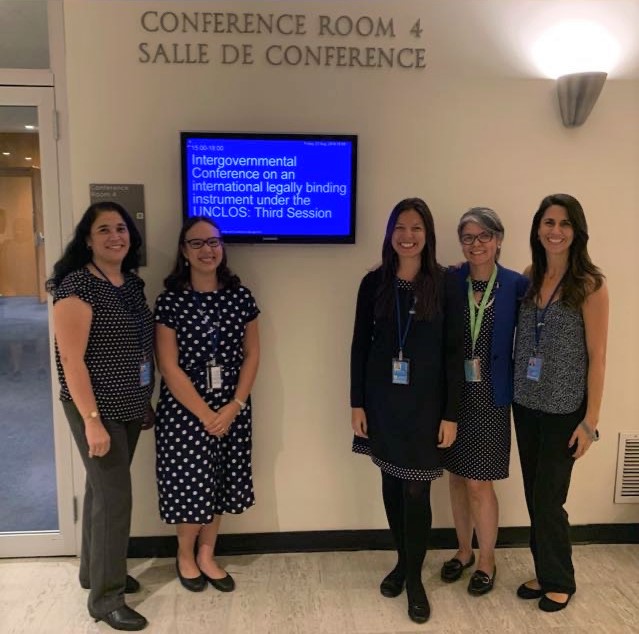My Name is Mariamalia Rodríguez Chaves and I’m a post-doctoral researcher in the WMU-GOI Empowering Women Programme, focusing my work on a group of ocean-related intergovernmental organizations (IGOs) and their approaches to gender equality.
Exploring what has been done by these ocean related IGOs in gender equality, it’s a great opportunity to identify good practices and challenges for women working in ocean science governance systems. I’ve collected data available in their respective websites, focusing on key elements that could demonstrate if these IGOs have been addressing gender equality and women empowerment through: a) Gender policies & Action plans; b) Designated gender focal points; c) Capacity building/education programmes; d) Women’s participation within governance structures and decision making bodies; among others. This information will be complemented by interview’s inputs, with the goal to feed key components into a Strategic Plan for Strategy and Action Plan for Gender Empowerment in the UN Decade of Ocean Science for Sustainable development.
In a personal approach, being part of this programme has taught me about the different angles of gender equality and how to merge them into my law background. As I’ve specialized in Law of the Sea, I participate in multidisciplinary processes and groups of professionals that depend on ocean sciences to inform and guide policy and decision-making processes.
In this regard, I wanted to share a couple of observations that also have captured my attention while participating in these meetings. For example, in negotiation processes on ocean affairs at the multilateral level, the heads of State delegations are usually men, and it’s not typical to see all-women national delegations or having a woman as the lead negotiator. Also, expert panels in such meetings or in technical workshops -specifically on ocean science- are usually male dominated (however, it must be noted that there are efforts to reverse this tendency and ensure gender balanced panels). From these two examples, one could see that women face challenges in getting to senior positions or to be invited to such panels. These two brief and subjective observations have given me a clearer perspective on how sometimes we assume these situations as “normal” and made me realize the critical need to improve gender balance in our daily lives and in our professional practice.
In the International Day of Women and Girls in Science, I want to think that the barriers and challenges faced by women in ocean science could be effectively addressed in the daily work of these IGOs through tangible actions to empower women and girls. Celebrating this day also means to show the great work of women contributing to ocean science, smash down stereotypes, inspire girls to engage in these fields and thrive in ocean-related careers. I wish to think that my baby daughter, in some years, could be one of those scientists invited to an expert panel or being the leading negotiator in an ocean related multilateral process… with the certainty that there are equal opportunities no matter if you’re a woman or a man.

